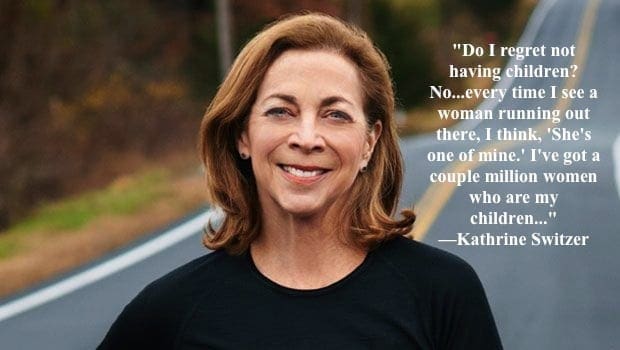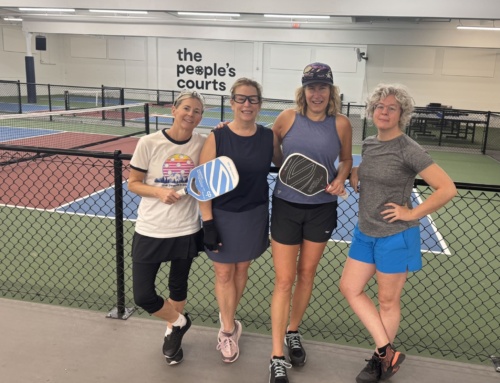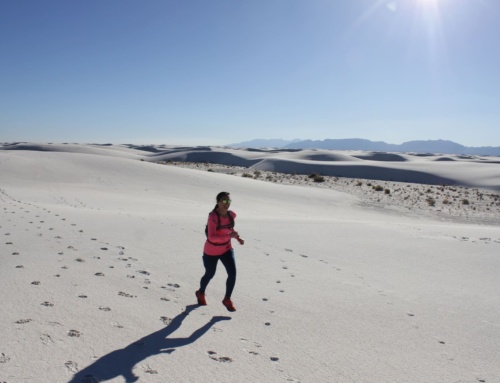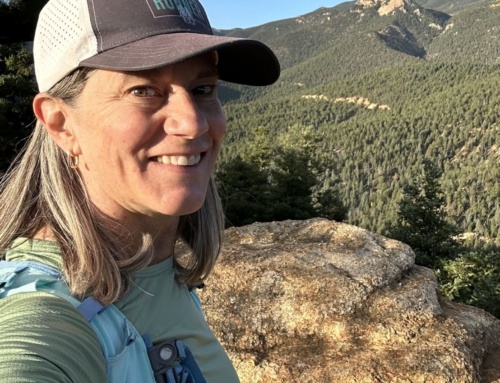[An edited rerun of a post I wrote in 2007. Worth revisiting one very special mother on this Boston Marathon Monday.]
When I moved to New York City at age 23, I was just short of confident, which was a big step up from my terribly gawky and unsure teenage years. The difference between high school and post-college? Crew. Being on a team brought out a side in me I hadn’t known before: one that can set a seemingly unattainable goal, and then, through hard work and sweat and sacrifice, meet it–or at least come close to meeting it. That process, in addition to strengthening my body, taught me how to win, how to lose, and how, to above all, trust in the process, my teammates and myself. In a word, I became an athlete.
And I also learned how to recognize one, off the field. I–and, I believe, most female athletes–have a internal radar that can instantly identify whether or not a fellow woman is an athlete. (Maybe it’s a athledar, instead of gaydar?) When I talk to a woman for the first time, I can usually tell, within minutes, whether or not she competed at some point in her life.
At the risk of overgeneralizing, athletes get the ubiquitous, but inexplicable, It. They understand that life can be excruciatingly hard (and much of that roughness is often self-imposed and periodically even enjoyed); that keeping your eye on the prize/goal/ball will eventually pay off in ways far beyond and more important than the finish line; that soulmates are often disguised as teammates; that a good laugh, often at your own expense, can defuse an are-you-kidding? workout and keep you coming back for more.
Without even saying a word, female athletes—everybody from 14-year-old softball players to 41-year-old mother runners—often speak the same language.
So when I picked up Kathrine Switzer’s book, Marathon Woman, I had moderate hopes: I wanted to hear her pioneering story in her words, but I’ve read enough writing by jocks to know that their literary skills pale in comparison with their sports skills.
Not so with Switzer, who speaks our language. Not only was she a Boston Marathon pioneer, she was the driving force behind both getting women around the world to run (in tee-shirts with “Avon” across the chest, no less) and lobbying for the inclusion of the women’s Olympic marathon in the 1984 Games. She writes eloquently and honestly about her running and other exploits: her successes and her failures and, often, what she wore while racing (um, a leotard and tights? really?).
She clearly gets It, and female runners around the world are extremely lucky she does.

Switzer running strong. Thankfully, for all of us reading this, she would not be denied the Boston Marathon.
Here, some passages that resonated with me: hopefully some do the same with you.
[[before her first Boston marathon in 1967]]
“I didn’t look or feel worse for running; on the contrary, the longer I ran, the better I felt, and indeed was, in every way. It was logical to me that hard work done progressively makes you stronger no matter what kind of animal you are. I had always reveled in the duality of being a feminine athlete, and now I felt more aware and confident than ever of my attractiveness and sexuality, both of which seemed to grow with the sense of strength and power that the long run gave me.”
[[before her second Boston marathon in 1968]]
“The longer you put off starting something hard, the more difficult it became. But starting training again seemed overwhelming: the cold, the snow, the relentless demand of having a long run every single weekend. I wanted so badly to be free of having to do something and yet I couldn’t kid myself. If I seriously wanted to do it, I had to make the commitment; you can’t mess around with the marathon. I was going to have to actually get my shoes on every single day and do it….or I’d get to be fat and forty and be one of those who say, Gee, I shoulda run Boston again.”
[[before the Boston marathon in 1974]]
“One snowy Sunday in February I jogged up to Central Park to do my long run…I was the only person in the park…I looked up at the expensive apartments along Fifth Avenue, imagining the people having coffee or Bloody Marys, reading their thick Sunday editions of the New York Times, or looking out the window and watching this solitary figure running through the snow. I wondered if they admired me or if they thought I was a nutcase….I usually laughed it off and thought how envious they must be of my youth and vigor, and that all their money wouldn’t buy the health and accomplishment I had….The fact was I wanted just for once to curl up on a Sunday with coffee and the Times. That’s when I knew I was tired. So I stopped for a moment and shouted up to the buildings, ‘There will be a time in my life when I don’t have to prove myself anymore!'”
[[During the 1975 Boston Marathon]]
“Halfway, at Wellesley, it was impossible to concentrate, so I let my mind go for a while. The women just went insane. They screamed so loudly they were crying, and I felt my eyes well up too. I pumped my fist a couple of times in the air…and they screamed again; I couldn’t help it. I just wanted them to know that Yes, we are powerful women; I’m really doing this for all of us and we’ve come such a long way and thank you for your support.”
Thank you for taking millions of us on as children, Kathrine, and showing us the path to strength, happiness, self-definition. Thank you for speaking our language.
Yes, we are all powerful women.








Leave A Comment
You must be logged in to post a comment.